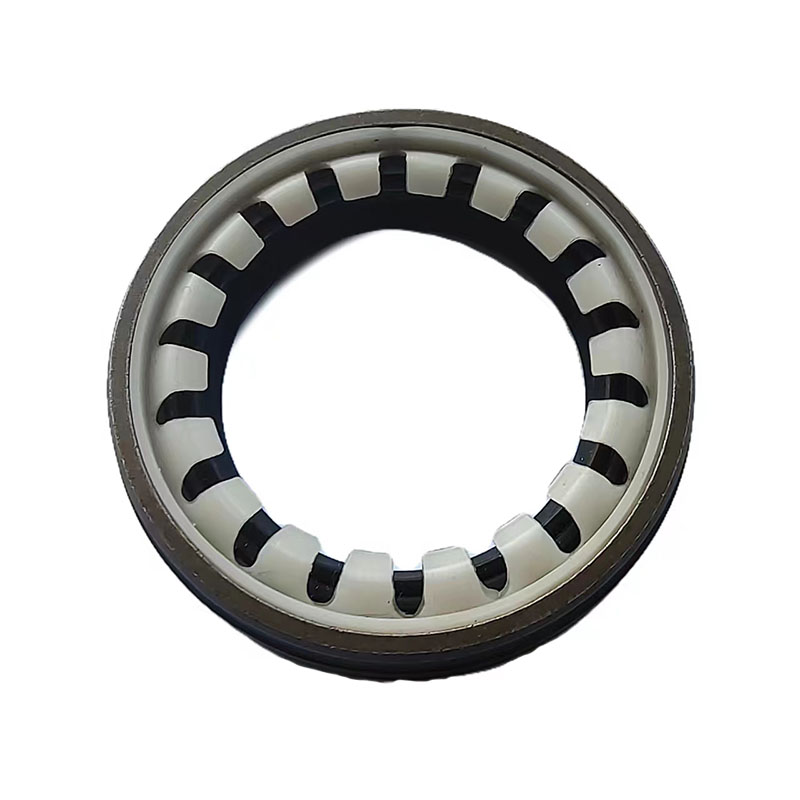Different Categories of Oil Seals and Their Applications in Industry
Types of Oil Seals A Comprehensive Overview
Oil seals, also known as oil seals or lip seals, play an essential role in a wide range of mechanical systems. Their primary function is to retain lubricating oil within components like engines and gearboxes while preventing the ingress of dirt, dust, and other contaminants. This is crucial for maintaining efficient operation and extending the lifespan of machinery. In this article, we will explore the various types of oil seals, their materials, applications, and the benefits they provide.
1. Basic Types of Oil Seals
Oil seals are typically categorized based on their design and function. Here are the primary types
- Single Lip Oil Seals The most common type, single lip oil seals consist of a rubber lip that makes contact with a shaft, creating a barrier against lubricant loss and contaminant entry. These seals are simple and cost-effective, suitable for various applications.
- Double Lip Oil Seals This type features two lips, offering improved sealing capabilities. The inner lip retains oil, while the outer lip prevents contamination from entering the housing. Double lip oil seals are widely used in applications where the risk of contamination is high.
- Rotary Oil Seals Specifically designed for rotating shafts, rotary oil seals can be either single or double-lipped. They are particularly common in automotive and industrial applications, ensuring effective sealing for rotating components.
- Parabolic Oil Seals These seals have a unique design that allows them to accommodate shaft misalignment and vibrations. Parabolic seals are often found in high-speed applications where traditional sealing methods might fail due to dynamic conditions.
- Metal Shielded Oil Seals Featuring a metal outer casing, these seals provide enhanced durability and resistance to harsh environments. They are commonly used in high-load applications and where heat resistance is necessary.
2. Seal Materials
The effectiveness of an oil seal largely depends on the material used. Some of the most common materials include
- Nitrile Rubber (NBR) The most commonly used material for oil seals, NBR offers excellent oil resistance and can operate well at moderate temperatures.
- Fluoroelastomer (FKM) Known for its high-temperature and chemical resistance, FKM seals are ideal for applications exposed to extreme conditions and aggressive fluids.
- Polyurethane (PU) PU seals are known for their abrasion resistance and flexibility, making them suitable for dynamic applications subject to wear.
- Silicone Rubber Offering high-temperature resistance, silicone seals are typically used in applications requiring a wide temperature range
.types of oil seal

3. Applications of Oil Seals
Oil seals are utilized in various industries and applications, such as
- Automotive In vehicles, oil seals are vital components in engine assemblies, gearboxes, and differential units, ensuring proper lubrication while keeping contaminants out.
- Industrial Equipment Oil seals are extensively used in machinery such as pumps, compressors, and conveyors, where they play a crucial role in maintaining performance and durability.
- Aerospace In aircraft engines and systems, oil seals must meet rigorous safety and performance standards, often using specialized materials to withstand extreme conditions.
- Hydraulics Hydraulic systems rely on oil seals to prevent fluid leakage, maintain pressure, and ensure efficient operation of hydraulic cylinders and valves.
4. Benefits of Using Oil Seals
The inclusion of oil seals in machinery offers numerous advantages, including
- Reduced Lubricant Loss By effectively sealing components, oil seals play a critical role in minimizing lubricant loss, leading to reduced operational costs.
- Contaminant Protection Oil seals protect against dust, dirt, and moisture ingress, which can cause significant damage to mechanical systems if not properly sealed.
- Extended Equipment Lifespan With proper sealing, equipment is less likely to suffer from wear and tear, resulting in extended operational life and reduced maintenance needs.
- Enhanced Performance Properly functioning oil seals contribute to the overall efficiency and performance of mechanical systems, ensuring they operate smoothly.
Conclusion
In conclusion, oil seals are vital components across various industries, playing a crucial role in ensuring the efficient operation of machinery. Understanding the different types of oil seals, their materials, and applications is essential for selecting the right seal for specific needs. By utilizing the appropriate oil seal type, businesses can improve the longevity and performance of their equipment while reducing maintenance costs and downtime. Whether in automotive, industrial, or aerospace applications, oil seals are indispensable for maintaining reliability and efficiency in mechanical systems.
-
The Ultimate Guide to Boat Propeller Bearings and Trailer Wheel Bearings
News Jul.31,2025
-
The Essential Guide to Marine Bearings and Boat Trailer Wheel Bearings
News Jul.31,2025
-
The Complete Guide to Heavy Duty Seals: Protecting Doors and Spaces Efficiently
News Jul.31,2025
-
Essential Guide to Marine Shaft Bearings and Boat Trailer Axle Bearings
News Jul.31,2025
-
Comprehensive Guide to Marine and Trailer Bearings for Safe Boating and Transport
News Jul.31,2025
-
Comprehensive Guide to Automotive Oil Seals: Protecting Your Engine and Shafts
News Jul.31,2025
-
Understanding Automotive Oil Seals: Essential Components for Engine and Shaft Protection
News Jul.30,2025
Products categories















